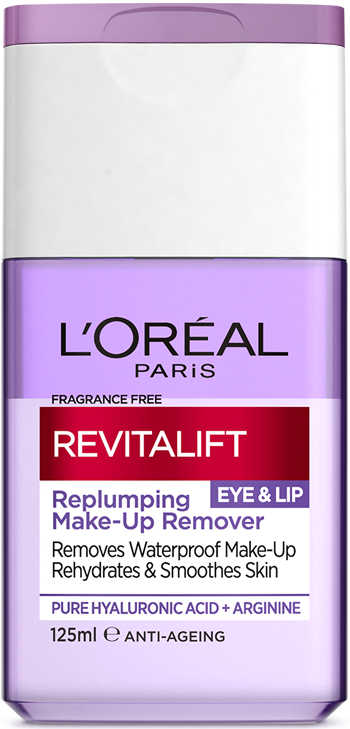Revitalift Filler Hyaluronic Acid Hydrating Makeup Remover

Product details
Introducing L'Oréal Paris Revitalift Filler Replumping Hyaluronic Acid Eye & Lip Makeup Remover formulated with Pure Hyaluronic Acid, a powerful dermatological active, and natural origin Arginine.
This hydrating makeup remover removes even waterproof makeup whilst hydrating and smoothing the appearance of skin. Formulated for use on the delicate eye and lip area, the fragrance-free makeup remover makes the perfect addition to your skincare routine. Use this hydrating makeup remover to remove waterproof makeup, replump skin and rehydrate for visibly smoother skin.
The benefits?
- Hydrating makeup remover that simultaneously removes makeup while plumping skin.
- Fragrance free - perfect to use as a soothing eye makeup remover
- Formulated with Hyaluronic Acid for skin hydration
- Waterproof makeup remover
Validated by Dermatologists.
Ingredients
GLYCOL • DIPOTASSIUM PHOSPHATE • DISODIUM EDTA • POLYAMINOPROPYL BIGUANIDE •
OCTYLDODECANOL • OCTYLDODECYL XYLOSIDE • ARGININE • CITRIC ACID • SODIUM
HYALURONATE • CI 60725 / VIOLET 2. (F.I.L. Z286323/1).
Usage
2. Gently wipe your face with the cotton pad until makeup is removed.
3. To use as a soothing eye makeup remover, hold the pad over closed eyes for a few seconds then gently wipe.
Continue your skincare routine as usual, cleansing with the Revitalift Filler Hyaluronic Acid Face Cleanser.












